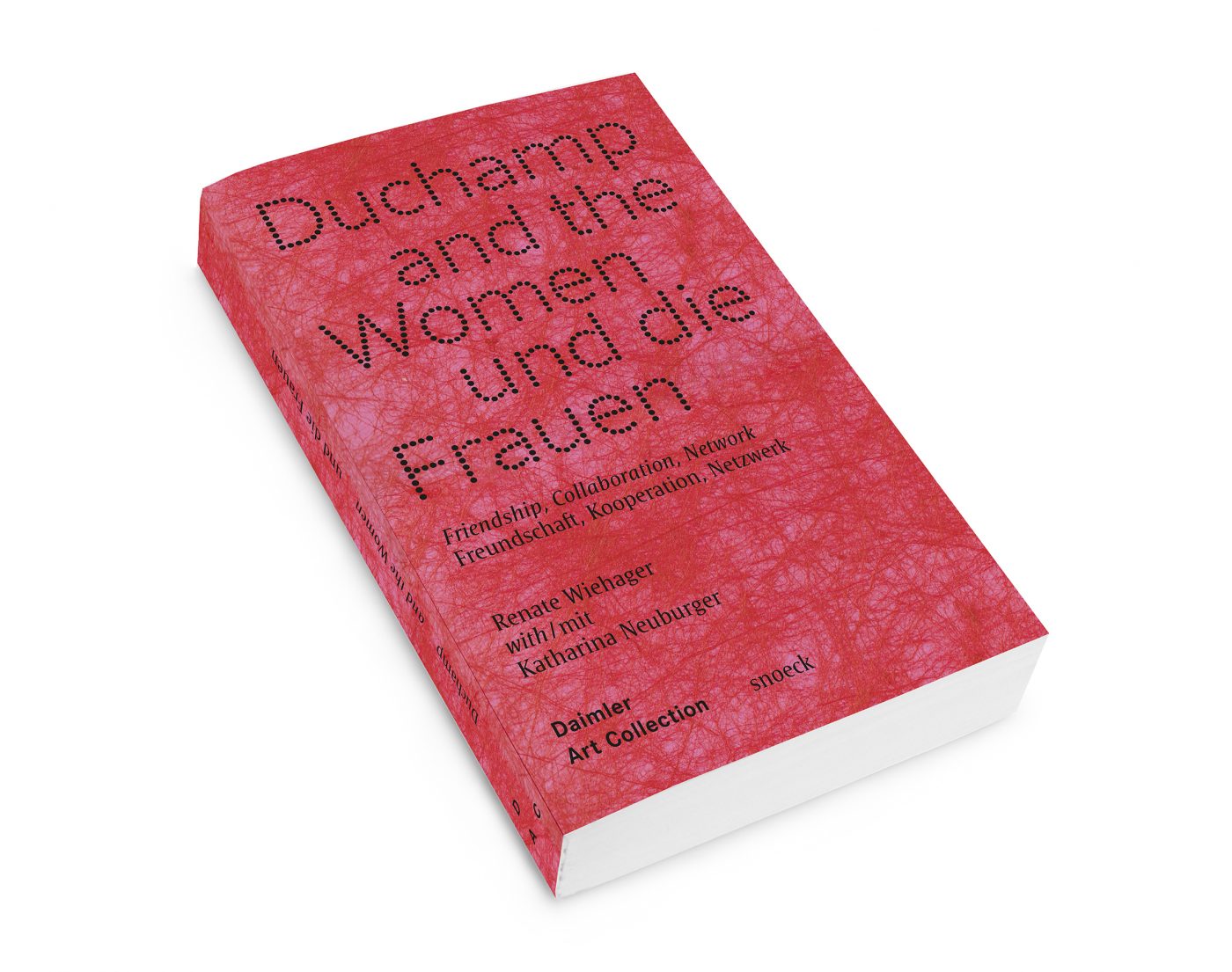The publication project Duchamp and the Women approaches in unusual ways the defining artist of the 20th century, Marcel Duchamp. Following Duchamp as Curator (2017) and Marcel Duchamp: The Curatorial Work (2019), this third volume of a publication series edited by Renate Wiehager with Katharina Neuburger opens up a new research perspective on the French artist. Based on biographical portraits, art historical essays, and historical texts by and about 100 female artists, authors, gallery owners, and collectors who influenced the life and work of Duchamp, this publication outlines the essential initiatives, co-operations, and conceptual foundations he developed in concert with these female protagonists of the 20th century.
The editors’ main focus is not on the usual clichés of the genius/muse relationship, lopsided sexual power relations, or a retroactive framing of psychological motives based purely on Duchamp’s own romantic interests. Rather, Duchamp and the Women traces the social and cultural shifts effected by the women who, as Duchamp’s colleagues and intellectual partners, also shaped him and his artistic practice. The publication chronologically examines these women, some of whom were central figures of early 20th century modernity, some essential supporting players in the fascinating intellectual and artistic networks of the time. Duchamp and the Women introduces readers to the cultural circles and artistic movements in the context of which these women were active and within which they in turn exerted influence. New facets of Duchamp’s work and significance are revealed by this (re)contextualization of the women around him, from the time of his youth until his death in 1968.
In addition to chronologically-grouped short biographies, comprehensive essays by Renate Wiehager and Katharina Neuburger—supplemented by a guest contribution from the literary scholar Sandro Zanetti—trace the paths of these protagonists as leading figures of early modernism and spokeswomen of a qualitatively new feminism. These essays deal with: Louise Arensberg (1879–1953), Gabrielle Buffet-Picabia (1881–1985) Katherine S. Dreier (1877–1952), Suzanne Duchamp (1889–1963), Elsa von Freytag-Loringhoven (1874–1927), Peggy Guggenheim (1898–1979), Mina Loy (1882–1966), Maria Martins (1894–1973), Mary Reynolds (1891–1950), Rrose Sélavy (“created” in 1920), Gertrude Stein (1874–1946), Carrie, Ettie, and Florine Stettheimer (1870–1944), and Beatrice Wood (1893–1998). Original texts by and about the women, some of which appear here for the first time in German and English, broaden the scope of the book by incorporating contemporary historical voices. A comprehensive bibliography also provides researchers from various fields with an important basis for further investigations into the lives and works of the people gathered in Duchamp and the Women—including Duchamp himself.
